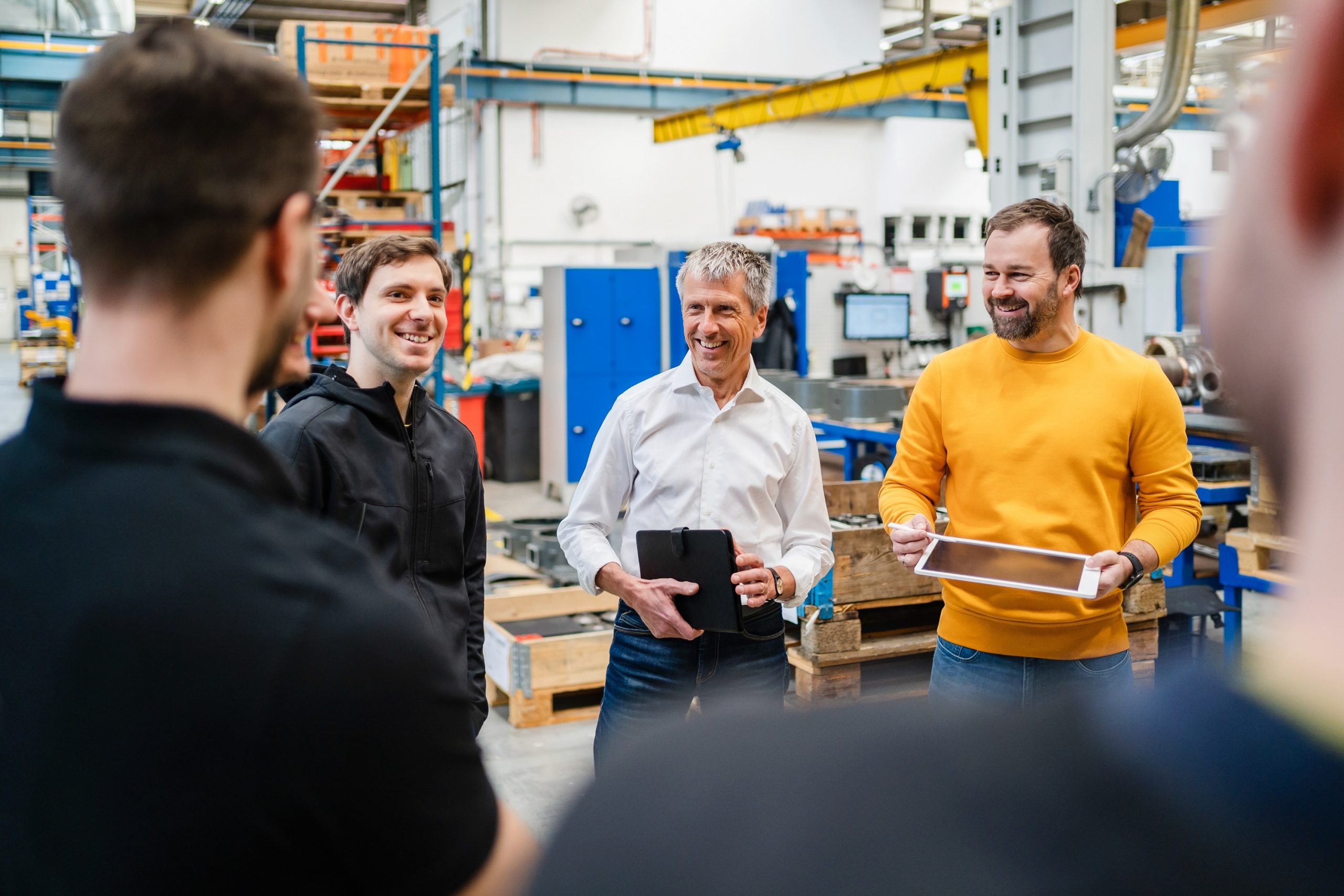AI brings corporate might to all sizes of the business
The rapid pace of technological advancement has ushered in a new era of innovation, with artificial intelligence (AI) playing a pivotal role. AI has already proven transformative across industries, automating processes, and offering predictive insights. With the advancements in field of generative AI (GenAI), this power expands further, enabling creation of new content, generate fresh insights, and drive product innovation. For businesses striving to remain competitive, GenAI’s capabilities are crucial. It is up to company leaders to recognize AI’s industry-redefining potential, while simultaneously fostering a culture of experimentation, learning, and reskilling to harness its benefits.
“Developing innovative technologies for us in Microsoft means that we are our own “customer zero,” learning about the technology and upscaling it before introducing it to customers or general availability. Throughout the past year we have experienced how much time it takes for people to develop new skills and AI habits and how it changes day-to-day work. Now we can share our knowledge to facilitate AI transformation for everyone,” said Michelle Simmons, President, Microsoft Central Europe. “Leaders who see AI as an opportunity and who can think creatively about how to advance their operations are already getting the competitive edge in this next era of work.”

The 2024 Work Trend Index Report underlines this as the year of AI adoption, noting that 75% of workers already use it regularly at work. However, many companies still lack an AI strategy, leading employees to bring their own tools to work—a practice that raises concerns about data security. For organizations to safely embrace AI, they must invest in company-provided AI tools, backed by robust training programs to ensure safe, secure usage.
AI Is Levelling the Playing Field for Businesses Big and Small
Once a major differentiator between large and small companies was access to advanced technology and skilled workforces. Now, AI is broadly accessible, available to organizations of all sizes. Microsoft’s survey on the impact of Copilot, one of its flagship AI tools, underscores this: businesses—regardless of their scale—are already seeing productivity gains from AI integration.
More specifically, businesses in industries like finance, FMCG, energy, telecommunications, and entertainment are already utilizing AI tools to improve operations and free employees from administrative burdens. Copilot, for instance, is used to take notes, summarize meetings, and write reports, allowing employees to focus on more strategic tasks.
From Reports to Budgets: AI Tools Free Up Time for Strategic Thinking
According to Microsoft’s survey, 70% of Copilot users report increased productivity. In the finance sector, which traditionally spends long hours on analysis and report preparation, AI’s potential is vast. Absa bank, for example, has seen a significant reduction in report preparation times. Reviewing and analyzing Central Bank documents—once a multi-hour or even multi-day task—can now be completed in just 20 minutes.
Daniel Ivanov, Director of Corporate IT at Paysafe, a payments platform, shared that Copilot helps his IT team prepare technical documentation by aggregating content from various sources.: “Our IT team uses Copilot in Word to prepare technical documentation. They reference various documents, and Copilot combines the information into one neat text. Compared to preparing documentation from scratch or searching for information manually, with Copilot, our IT team saves between 10% to 50% of time.”
Tasks like budgeting, which involve large teams and complex data from multiple sources, have also benefited from AI-powered efficiency. Mert Yaycıoğlu, Chief Financial Officer in Enerjisa Üretim, a leading Turkish energy company, highlighted the improvements, stating “What Copilot enabled us is to speed up our output preparation processes like reducing the budget presentation preparing time by 60%.”
Using technology to perform repetitive or long-lasting tasks saves time for the employees for more creative or meaningful work. Bhuvan Pawar, Head of Digital Innovation, Automation and Analytics at Asahi Europe & International, explained: “We believe that time can be put to better use, such as for strategic planning and critical thinking about our engagement with consumers and internal stakeholders.” The company is now exploring AI applications that could further improve consumer experience. Working with consumer goods means working with customers that run their shop all week, and it requires teams able to collect orders whenever needed. “So, if AEI would have a digital AI worker, you could speak to us 24/7 or make an order on our platform and receive your goods at the right time,” explains Pawar.
EPAM, a tech leader in software and business consulting, quickly adapts to new technologies. They have implemented AI-powered tools into their daily work, mastering the technology they offer to clients. Aliaksandr Baradyntsau, Vice President of Account Management, EPAM, stated, “AI today is similar to cloud technologies back in the day; everyone’s talking about it, but not everyone understands what’s possible. Our experience with Copilot enables us to demystify AI for our clients, who may not be inherently technology-focused.”
UiPath, a leading enterprise automation and AI software company, maximizes AI’s power by integrating its UiPath Business Automation Platform with Copilot for M365. This integration allows joint customers to automate more knowledge work and enhance end-user experiences.
Employees Don’t Need to Be AI Experts – Just Willing to Test and Learn
One common misconception is that employees must be AI experts to benefit from tools like Copilot. In reality, AI’s design is increasingly intuitive, requiring only a willingness to test and learn. Microsoft’s research found that 79% of early adopters said AI reduces the burden of administrative tasks.

“We started to automate almost every previously manual process. If a process couldn’t be automated, we considered removing it altogether,” commented Karolina Mitraszewska, Vice President of the Management Board at Nest Bank. Recognizing the importance of digital infrastructure, Nest Bank first invested in cloud infrastructure and data management to ensure their AI rollout was smooth and effective.
Similarly, O2 Czech Republic has integrated Microsoft Copilot to streamline administrative tasks, freeing employees to focus on innovation. Acknowledging the potential of artificial intelligence, O2 also established its AI Centre Dataclair.ai to innovate with the help of AI. “We process big data and then apply AI algorithms and advanced analytics to generate insights that can improve customers services and operations,” explains Petr Hirš, Director of AI Centre at O2 Czech Republic.
In Ukraine, MODUS X, an IT company within the DTEK Group, a diversified energy holding, launched a pilot project to implement the Microsoft 365 Copilot solution. Preliminary results show that 71% of users report faster task completion, which leads to time savings of up to 25% on routine operations. “Copilot has significantly optimized our workflows. By providing quick access to analytics and automating routine tasks, it has increased our team’s productivity and improved our strategic planning. It has become an essential tool for achieving the business goals of the Office for the Restoration of Energy Infrastructure.” Oleksiy Povolotskiy, Head of the Office for the Restoration of Energy Infrastructure, DTEK.
In the bank Česká spořitelna 170 volunteers first tested how Copilot can help in everyday operations. Martin Kobza, member of the Board of Directors and Chief Operating Officer, explained what the company aims to achieve by using AI-powered tools for daily tasks: “We have set ourselves the goal of increasing the productivity of our employees by thirty percent with the help of artificial intelligence within two years. We proactively offer them new technologies to work with, because we don’t want them to have to look for something online on their own.”
Will AI Tools Become a Business Standard?
The broader question now is whether AI will become a business standard. 71% of Copilot users in Microsoft’s survey reported saving considerable time on mundane tasks. For companies like Motor Oil Group, a leader in Greece’s energy sector, AI’s integration into daily operations has streamlined formerly lengthy tasks. “We use AI in forecasting the energy produced from our solar and wind parks, which is essential for supporting our renewable energy business. In our refinery, we use AI to identify potential failures in our equipment, which saves us thousands of euros every month,” commented Jason Orphanidis, IT Manager, Retail and New Technologies at Motor Oil Group.
In a completely different sector, Africa’s leading entertainment platform MultiChoice, serving 23.5 million households across 50 markets, has experienced similar success. That is why the company turned to AI to find a tool that can reduce the time people spend on daily tasks. In a fast-paced environment with frequent meetings, Copilot helped reduce administrative tasks from 3-4 hours per day to just one hour, according to Sana Abbas, Program Manager at MultiChoice.
Early adopters like OPAP, Greece’s top gaming company was one of the first companies globally to integrate AI tool in their daily operations. “We are just at the beginning of a new era where technology is about to transform our everyday lives once again. I feel that Copilot is going to be just as a standard tool in the future as Microsoft Word or PowerPoint is today,” said Costis Paikos, Director of Digital at OPAP.
The Future: Embracing AI for Strategic Decision-Making and Secure Operations
As AI continues to advance, its applications extend beyond automation. It’s true power lies in strategic decision-making, enabling personalized customer experiences, and providing predictive analytics.
Early adopters demonstrate how AI can reduce costs, boost productivity, and drive innovation. Throughout history, predictions of widespread job loss from technology have missed the bigger picture: new sectors and roles consistently emerge as innovation progresses. The challenge is not the elimination of jobs, but helping industries and people adapt to this shift.
The next frontier is ensuring businesses stay secure as they harness this power. Leaders must prioritize robust AI governance and data security, ensuring that the promise of AI is matched by vigilance in protecting sensitive information.





